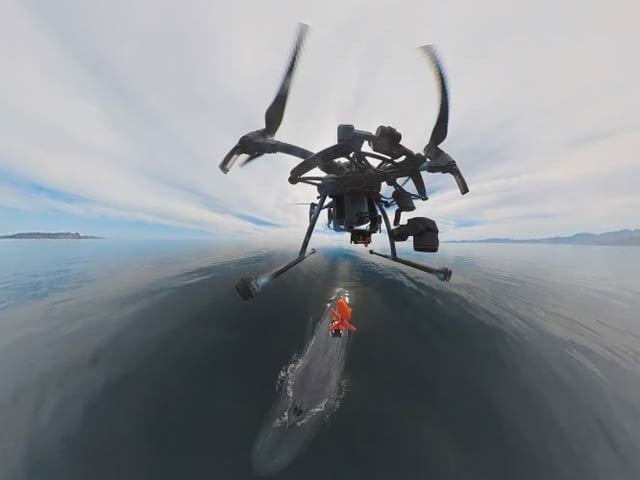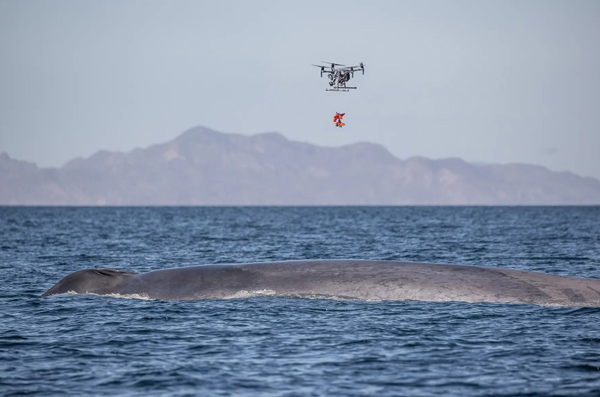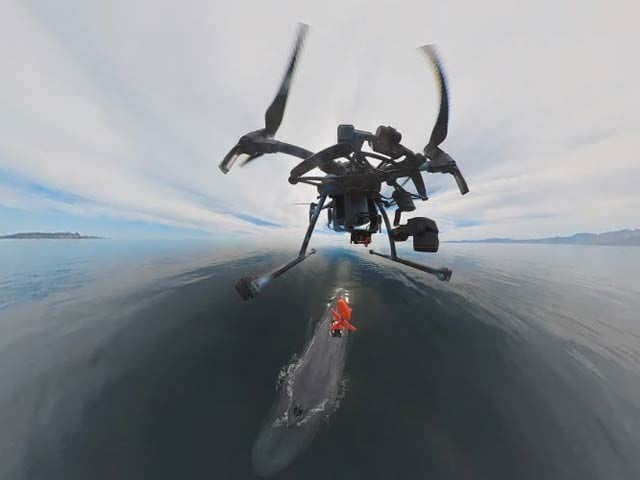
American scientists have developed a drone that applies biological and electronic tags to whales. Photo: New Atlas
New Maxio: Scientists have developed a drone that can keep itself in sync with whales, observe them and attach electronic tags to them.
There is no doubt that almost all species of whales face serious threats. It is also impossible to research them as they live far from our shores and spend most of their time in deep water. A special ‘whale drone’ has been developed under this requirement.
The drone has previously been tested for several days in Mexico’s Loreto Bay National Park. Attempts have been made to tag running animals with this drone. A total of 29 times it has attempted to tag, 21 of which have been successful.

Electronic tagging can be used to record whale movements and other conditions, making it an excellent way to research marine animals. Most importantly, the drone speeds up as the wheel speeds up and slows down when it slows down.
The process of tagging is called ‘balllogging’, in which a small computer is attached to the whale’s body. A tag can track an animal for a day or longer.
His preliminary research has been published in the Journal of the Royal Society.
(function(d, s, id){
var js, fjs = d.getElementsByTagName(s)[0];
if (d.getElementById(id)) {return;}
js = d.createElement(s); js.id = id;
js.src = “//connect.facebook.net/en_US/sdk.js#xfbml=1&version=v2.3&appId=770767426360150”;
fjs.parentNode.insertBefore(js, fjs);
}(document, ‘script’, ‘facebook-jssdk’));
(function(d, s, id) {
var js, fjs = d.getElementsByTagName(s)[0];
if (d.getElementById(id)) return;
js = d.createElement(s); js.id = id;
js.src = “//connect.facebook.net/en_GB/sdk.js#xfbml=1&version=v2.7”;
fjs.parentNode.insertBefore(js, fjs);
}(document, ‘script’, ‘facebook-jssdk’));



